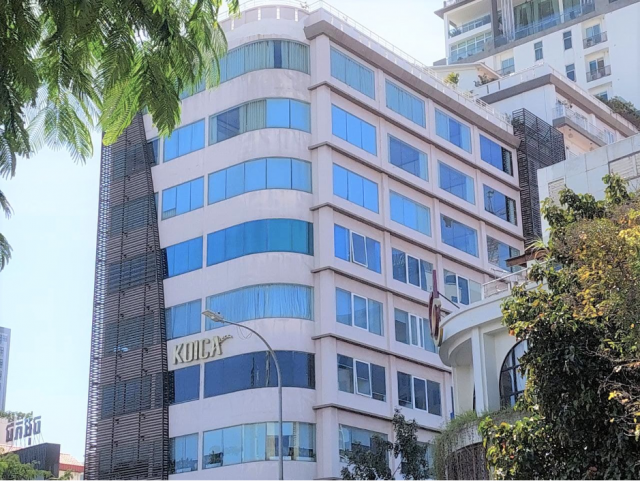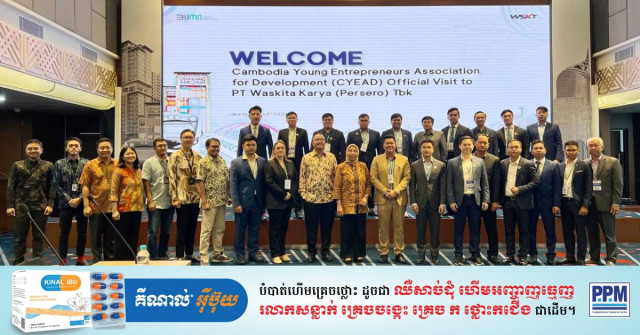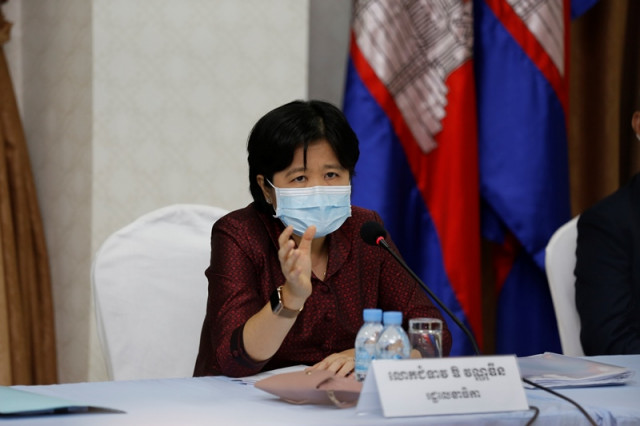The Development of KOICA in Cambodia: A Brief Outlook, Challenge and Future Cooperation with the Kingdom

- By Ek Bunly
- December 12, 2021 5:18 PM
The Korean International Cooperation Agency (KOICA) was established in 1991 by the Ministry of Foreign Affairs of the Republic of Korea for South Korea’s Official Development Assistance with its goals to eradicate poverty, promote human development, establish and carry out projects of the New Southern and New Northern Policy.
In Cambodia, the agency’s office was established in 2003 to strengthen the bilateral relations between the two nations with development programs, projects, trainings, volunteers, aids, and grants. In the Kingdom, KOICA has four priorities, which are to improve Cambodia’s agricultural and rural sector, human resources development and education sector, transportation and infrastructure development, and water management and public health sector.
In the agricultural and rural development sector, the agency pushes for the improvement of living conditions and agricultural support. For instance, the “Support on Construction of Agricultural Technology Training Center in Cambodia” was signed in 2021 and, totaling over $13.4 million, will be implemented in Svay Rieng Province at the Ta Saang Agricultural Training and Extension Center to train specialists and farmers by providing technical training, equipment, promote the transfer of technology to boost productivity and quality of agriculture in Cambodia.
In addition, KOICA has placed the human resources development and education sector as one of the critical tasks for the agency in Cambodia. For instance, through the “Easy to Learn (E2L)” project in October 2021, KOICA built and handed over a primary school’s classroom in Veal Kansaeng Primary School in Chhlong district, Kratie Province, to improve access to primary education in the village and enable the minorities to gain access to safe, clean, and adequate educational materials.
Not only that, KOICA also supports the development of infrastructure to establish green and sustainable economic growth in Cambodia. The feasibility study on “Waterway Improvement for Port Logistics Development in Cambodia” in 2017 was designed to contribute to safe navigation and efficient waterway usage in the Kingdom. This was a fully-funded grant project of $5.5 million by the government of ROK to foster logistics and transport in Cambodia.
The water management and public health sector are also among KOICA’s top priorities. The agency supports the development of the Kingdom’s water resources management and public healthcare through the creation of hospitals, healthcare support, and health equity for the poor. For example, in 2020 and 2021, KOICA has provided pandemic supports and daily necessities to Cambodia’s health sector to ease vulnerable people’s challenges through the distribution of Food Packages and Hygiene Kits to help vulnerable families affected by COVID-19 in Kandal Province.
Despite the enhancement of cooperation between the government of Cambodia and ROK, minor challenges do occur for KOICA. These challenges include the COVID-19 safety measures, national spread and lockdown in Cambodia, which caused difficulties as KOICA exerted maximum effort in remote areas and villages for development programs during the peak of the pandemic in 2020. In addition, the number of Korean-speaking Cambodians is still less than 10% of the overall population, making the language barrier one of the main challenges for KOICA volunteers and especially in the KOICA’s World Friends Korea Program in which Korean volunteers interact directly with the locals who mostly speak Khmer and English. In this context, KOICA would need to acquire interpreters or learn languages in the Kingdom—which can be resource-consuming—to complement the development program operation.
For the future, KOICA has at least 15 projects and master plans that are being developed for the upcoming years. For instance, the $2 million establishment of the Master Plan of Eastern Mekong Delta Integrated Water Resources Management in Cambodia have met with success in March 2021 and is expected to be completed in 2023 in Prey Veng and Svay Rieng provinces to mitigate the damages caused by floods and to boost agricultural productivity. Moreover, KOICA has granted $7 million to improve the ICT education in the Kingdom to enhance teacher’s qualifications in Kampong Cham, Prey Veng, Takeo, and Kandal provinces.
In conclusion, the development of KOICA has come a long way since 2003 with priorities, projects, and programs successfully implemented in Cambodia. And although KOICA faces minor challenges, which can be eliminated over time, future projects and master plans are being continuously developed to improve living conditions, eradicate poverty, and improve relations between the two nations in the near future.
Bunly Ek is a research fellow at the Cambodian Institute for Cooperation and Peace (CICP). His research focuses on the relations between The Republic of Korea and Cambodia.















